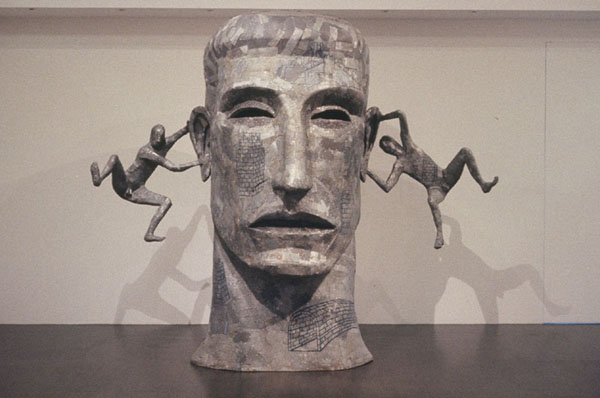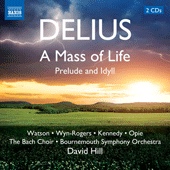
Friedrich Nietzsche’s Also sprach Zarathustra (So said Zoroaster) inspired a tone poem by Richard Strauss so successfully used in 2001: A Space Odyssey. The epic philosophical novel/poem is behind a portion of Gustav Mahler’s Symphony No. 3. What few people get to hear is Frederick Delius’s epic choral setting, The Mass of Life.
- Classical Music 101: What Does A Conductor Do? - June 17, 2019
- Classical Music 101 | What Does Period Instrument Mean? - May 6, 2019
- CLASSICAL MUSIC 101 | What Does It Mean To Be In Tune? - April 23, 2019
During the year marking the 150th anniversary of the birth of Delius (he died in 1934), we’ve heard almost nothing of his music in Toronto. His symphonic tone poems evocative of the sights and sounds of nature are particularly endearing.
Mass of Life, which has nothing to do with religion or traditional spirituality, is a massive cantata or oratorio that celebrates the rise of a new kind of human, one who has overcome morality as a sort of good-and-evil-free super-being.
Delius’s music is appropriately larger-than-life, using a huge orchestra, two choruses and requiring four powerful soloists. The music alternates between exhortation and bliss, stirring its listeners to contemplate something greater than themselves within themselves.
Mass of Life, Zarathustra and even Karl Marx’s Das Kapital (written 15 years before Nietzsche’s work) all come from an idealist strain of thinking that rebelled at the noise, filth, squalor and moral hypocrisy of the Industrial Revolution (we have to visit the slums of Calcutta or Caracás to recapture the feeling in the 21st century).
Mass of Life is us, but it is greater than us, making it also kin to Richard Wagner’s operas. Delius’ music owes a bit to Wagner, but it is also very much his own language.
So here, for the Thanksgiving atheists among you, is a means to celebrate the potential greatness of man as superman (and you can choose to ignore all the nefarious ways in which Nietzsche’s and Marx’s ideals were used in the 20th century).
Delius set the original German text in 1905 (he’d written a section earlier, which was so well received that he fleshed it out). English audiences wanted to listen in their own language, so they got a laughable translation that Delius’s greatest 20th century champion, conductor Sir Thomas Beecham, threw out, commissioning a new one from William Wallace.
 Wallace’s translation is included in an excellent recent Naxos album release of Mass of Life, featuring the Bournemouth Symphony Orchestra, The Bach Choir, an excellent quartet of soloists (including baritone Alan Opie) and conductor David Hill.
Wallace’s translation is included in an excellent recent Naxos album release of Mass of Life, featuring the Bournemouth Symphony Orchestra, The Bach Choir, an excellent quartet of soloists (including baritone Alan Opie) and conductor David Hill.
This is a spectacularly vivid recording that captures both grand and intimate moments with utter clarity.
The album also includes Prelude and Idyll that use material reworked from a 1902 one-act opera by Delius, Margot la Rouge. (For all the details, including audio samples, click here.)
David Hill prepared a short introduction to Mass of Life ahead of a Royal Festival Hall performance in 2009:
Although I love the music of Delius, and believe it is unjustifyably neglected in North America, I find Mass of Life a bit too much to take — a case of nothing exceeding like excess.
For more on Delius’s fascinating life (much of it spent in France), check out the U.K.-based Delius Society’s website here.
Here is a sample of the first of the work’s two parts. The portions that appeal the most to me are the baritone solos where the choirs become part of the overall orchestral texture. (A bit of trivia: Dietrich Fischer-Dieskau made his début in the U.K. when he was 23, singing the baritone part for Beecham.)
In this clip, we get the same orchestra, joined by the Bournemouth Symphony Chorus, soprano Joan Rodgers, mezzo Jean Rigby, tenor Nigel Robson and baritone Peter Coleman-Wright under the late Sir Richard Hickox, in a 1997 Chandos recording:
John Terauds
- Classical Music 101: What Does A Conductor Do? - June 17, 2019
- Classical Music 101 | What Does Period Instrument Mean? - May 6, 2019
- CLASSICAL MUSIC 101 | What Does It Mean To Be In Tune? - April 23, 2019



